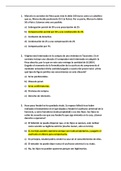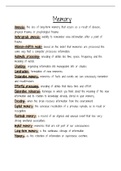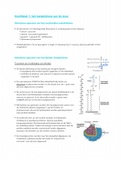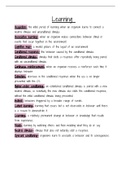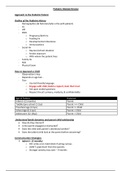Civics - the study of the rights and duties of citizenship.
Governance - the way a country and its citizens are managed.
Views of governance
Depends on who the people in power are and how they perceive society.
Philosopher Thomas Hobbes (1588 -1679) largely shaped what we believe government
should be.
o He had a negative view of human nature – believing that humans are selfish and
should be kept under control.
o He believed the only way to keep humans’ selfish desires under control was
through a monarchy.
o People could protest bad leaders but could not overthrow them as they previously
agreed to be ruled by them.
o There should be a social contract – where people agree to sacrifice some of their
rights to ensure the security of society.
o ^ described in his 1660 work named; The Leviathan
The first paragraph of the Declaration of Independence contains key ideas that shaped the
American ideology.
Thomas Jefferson – was part of the Enlightenment era (an intellectual and philosophical
movement that dominated the world of ideas in Europe in the 17th and 18th centuries) –
he got many of his ideas from John Locke (an English philosopher).
John Locke, in 1689 – rejected the idea that the king had all right to rule and proposed
that the rights of individuals should govern.
, John Locke
o People can choose how they want to live as long as they don’t negatively
influence other peoples’ rights.
The principle that the American constitution is based on.
o Rule of law – everyone should follow the law and will be judged under the same
law.
o Individual right – You have the right to happiness and achieving your goals as
long as you do not violate the rights of others.
Popular Sovereignty and the Consent of the Governed
o Benjamin Franklin said, “In free governments, the rulers are the servants and the
people are their superiors and sovereigns” – the rulers will listen to the people
they serve.
o The importance of the voice of the people was highlighted.
o This idea was reflected in the introduction of the constitution – “We the people of
the United States…”
o Constitutionalism – authority will be ruled by the law and ethical guidelines. –
example = federal law that follows the constitution.
Majority rule and Minority rights
o The decision with the most votes is the one that is followed.
o Voice of the people = refers to the majority
Simple way of making decisions
Ensures more people are for it than against it.
o Can easily lead to a tyrannical majority reign over the minority.

